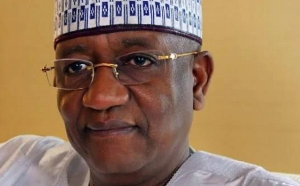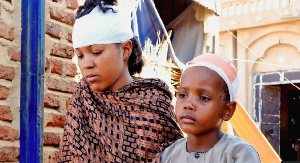Bolgatanga, June 2, GNA - The Vice President, Alhaji Aliu Mahama on Wednesday inaugurated the Wildlife Corridor Resource Management Board in Bolgatanga, which is under phase one of the Northern Savannah Biodiversity Conservation Project (CORMCO).
The Board would among other things man the conservation of the biodiversity resources and supervise the sustainable utilization of medicinal plants in the three Northern Regions.
Alhaji Mahama said sustaining the biodiversity needs of the three Northern Regions was part of the Government's vision and commitment to the speedy transformation of the area from its poverty endemic status to through the interventions of economically viable projects to prosperity. He noted that the free movement of wildlife necessarily required the conservation and protection of the natural habitat, which the majority of Ghanaians depended on for their medicinal needs and said there was the need for prudent management of wild species in the Savannah Zone.
Alhaji Aliu further noted that when the dry land resources were judiciously used as envisaged by the CORMCO Project it would complement Government's efforts at reducing poverty through increased agriculture productivity in the area.
Alhaji Aliu called on District Assemblies, Chiefs and the Communities to take advantage of the capacity building component of the Project to effectively manage the dry land resources to protect the forest and wildlife resources.
An official of the World Bank, Dr Edward Dwumfour, said two international financial institutions; the World Bank and the Global Environment Facility, were funding the project at the cost of 7.6 million dollars in support of Ghana's Poverty Reduction Strategy (GPRS) Programme.
He said the World Bank would commit in the coming years an amount of 125 million dollars to support economic growth, employment generation and service delivery in the areas of health, water, education, energy and sanitation. He added that part of the money would be used to enhance governance as well as other structures such as the decentralisation process.
Dr Dwumfour said when the support was through, it was expected to ensure that services were delivered better to the poor in the rural areas, empower all sections of the citizenry in the decision-making process as well as provide voice to the people at the grassroots. He expressed the hope that the inauguration of the Board was a sign of the Government's desire to share the management of resources with the people who were the rightful owners of these resources.
The World Bank official noted that the command and control of resource management was gradually giving way to collaboration, partnership and participation between State agencies, private sector, civil society and community members and that the new development would effectively enhance the Board's functions.
General News of Wednesday, 2 June 2004
Source: GNA












